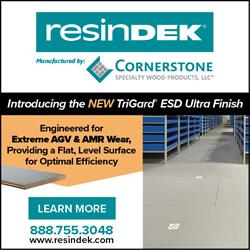How CNC Machining is Impacting Modern-Day Manufacturing? An Expert View
.jpg)
Regardless of your manufacturing business having its inception only a couple of years back or you being a trained professional, you must be familiar with CNC machining and how it can benefit your business in manufacturing operations.
Almost every manufacturing industry, from automobile production plants to manufacturing musical instruments, employs Computer Numerical Control (CNC) machines.
Operation of CNC Machining
CNC machining is a manufacturing approach dictated by predefined computer codes that guide the functioning of machinery like a grinder, milling, or lathe.
CAM software helps generate these codes using CAD drawings. This software implements a series of codes to regulate all aspects of machining processes. Minimal to no human intervention is necessary to operate CNC machining from feed rate to tool distance.
CNC offers multiple features such as multi-axis capabilities and computer control. For instance, a CNC lathe can operate diversely by doing cuts in circular directions. With several advanced machines like plasma cutters, water jet cutters, and CNC mills, manufacturers can accomplish complex production processes.
The Global Outreach of CNC Machining
Several manufacturing facilities have extensively adopted CNC machining, with its global market hitting worth $70 billion in 2018. This market worth is anticipated to hit $111 billion by 2026, depicting a 6.8% growth in six years.
CNC manufacturing has reduced operating expenses, eliminated errors in manufacturing, and has enabled seamless adoption with the rise of IoT technologies and predictive analytics.
For instance, the automotive sector immensely depends on CNC machining for production due to the increasing demand for spare parts and the necessity for higher precision. As such, the current trends in CNC machining hold great promise for machine shops.
Advantages of CNC Machining
The most prominent advantage offered by these machines is their ability to perform several operations uninterruptedly with no modification settings, thinning out the probability of errors due to human intervention.
Here are some advantages that CNC machining offers in manufacturing, in contrast to traditional and conventional machining process -
Increased Capability
When integrated with advanced design software, CNC machines generate outputs that are irreplicable manual machines. CNC machines can produce the desired size, shape, or texture of components. Best of all, an efficient benchtop CNC mill can yield maximum performance while occupying minimal room space.
Reduced Labor
CNC machining demands a lesser workforce to accomplish the production tasks. One skilled operator can operate most of the autonomous CNC machines, and a single programmer can get them loaded with the required designs.
Resources saved on labor can get passed along to customers, enabling you to achieve competitive leverage.
Uniform Product Delivery
Even the most skilled engineers operating a conventional machine will build components that will differ slightly. With CNC machines, each part is an excellent match to the precise specifications of the prototype.
CNC machines build precise tools and components due to automation and no human intervention, which is susceptible to generating sluggish results.
CNC Machining - Applications and Perks
Here are some applications of implementing CNC machining in the manufacturing process -
Reduced Operating Costs And Maximized Efficiency
The emerging implementation of computer-aided manufacturing (CAM) and computer-aided design (CAD) in prototyping and product design augments manufacturers to deliver high-precision components for various industries.
CNC equipment helps alleviate operating costs, boosts the efficiency of mass production, and builds up its revenue. It also renders precise detailing that manual processes lack and works with the broadest range of components.
CNC machines rarely require service other than to change the cutting implements at specified intervals or slight cleaning. None of the routine maintenance demands professional service, which helps save capital resources.
Enhanced Quality Via Automation
CNC machines render an extraordinary degree of accuracy when constructing complex shapes such as curves or diagonal cuts. This perk has led to an explosive demand for implementing technological advancements of CAD, CAM, and CNC software.
As critical CNC equipment repairs are financially taxing, manufacturers have started utilizing predictive analytics and predictive technology. Such tools are helping companies curb their downtimes because of repairs and ensure a streamlined functioning of processes.
Extensive Demand of CNC Parts
CNC parts enjoy a comprehensive range of applications in every sector and are extremely popular in large-scale industries like aerospace.
This extensive demand is due to their ability to build intricate geometries with ease and high-quality precision. Aluminum is a commonly used material because of its extraordinary mechanical properties.
Enhanced Prototyping and 3D Modelling
Precise modeling and prototyping are pivotal to the realization of the production process. A CNC machine enables you to scan, copy, engineer, and even reverse-engineer components to design innovative and advanced products.
The pace of production of CNC routers and CNC plasmas allows you to speed up project timelines as you swiftly and accurately build realistic prototypes to influence future decision-making.
Final Words
The extensive implementation of CNC machinery across several industries has optimized an enormous range of manufacturing capabilities. It ensures extreme levels of precision, cost-efficiency, equipment safety and enables the mass-production of parts.
As industries embrace industrial automation, CNC machining and tools are helping alleviate costs and boost the production tempo. CNC machining enables small and large businesses to compete and render greater work flexibility with a wide range of materials.
About the Author:
Peter Jacobs is the Senior Director of Marketing at CNC Masters. He is actively involved in manufacturing processes and regularly contributes his insights for various blogs in CNC machining, 3D printing, rapid tooling, injection molding, metal casting, and manufacturing in general.
Comments (1)
Featured Product

